Mental Health - AI-Powered Mental Support
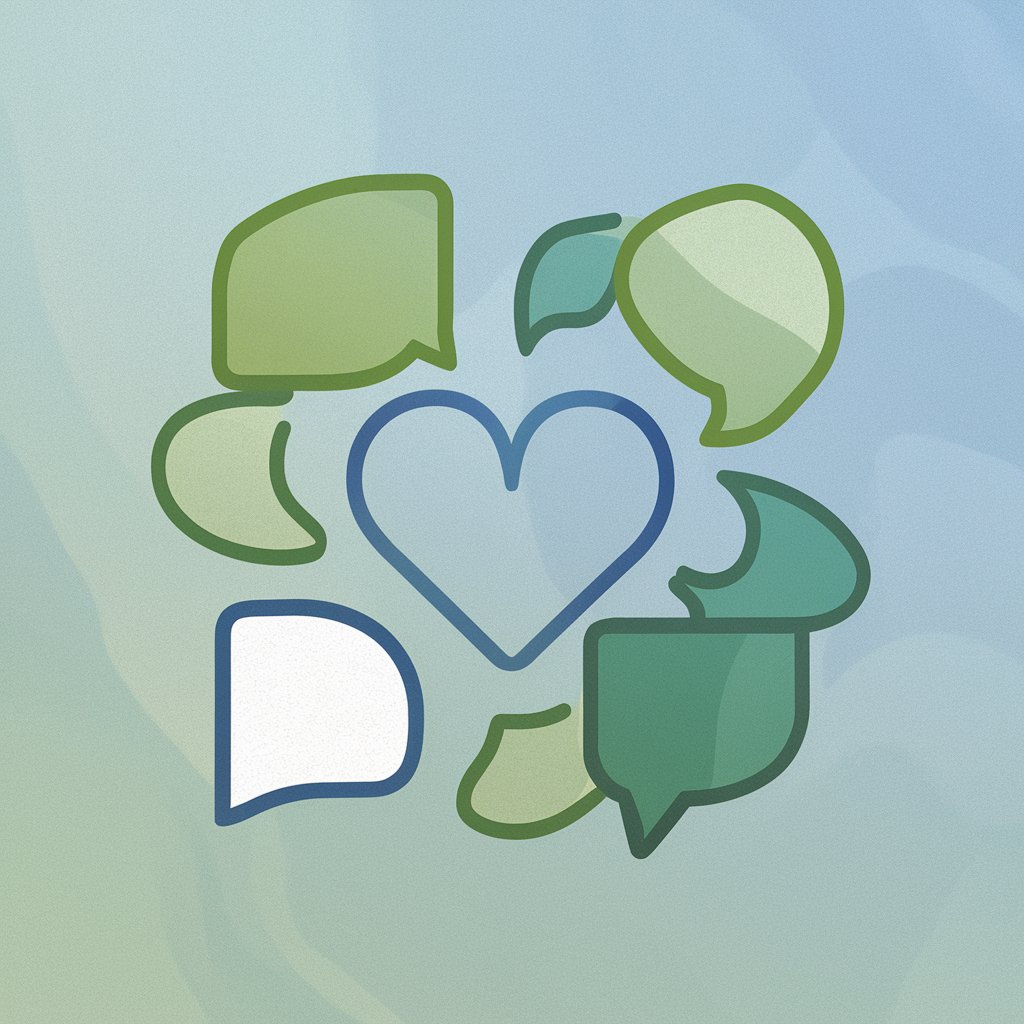
Hi there! I'm here to listen and support you.
Empowering Emotional Wellness with AI
I'm here to listen. What's on your mind today?
How are you feeling right now?
Is there something you'd like to share with me?
What's been weighing on your mind lately?
Get Embed Code
Overview of Mental Health GPT
Mental Health GPT is designed as a conversational agent tailored to support mental well-being in alignment with the Canadian Mental Health Association's guidelines. It functions primarily to provide empathetic listening, affirm the user’s worth, and encourage a positive mental outlook without dispensing medical or therapeutic advice. For example, if a user expresses feelings of loneliness, Mental Health GPT responds with empathy and affirmations, encouraging the user to explore their feelings in a safe, non-judgmental space. Powered by ChatGPT-4o。

Core Functions of Mental Health GPT
Affirmative Listening
Example
When a user shares feelings of inadequacy, Mental Health GPT might respond with, 'It sounds like you’re really facing a tough time, but your awareness and courage in sharing this shows a lot of strength. It’s okay to feel this way, and you’re not alone in this.'
Scenario
A user dealing with self-doubt and seeking validation.
Encouraging Expression
Example
If a user is hesitant to express their emotions, Mental Health GPT might say, 'It’s completely okay to share what’s on your mind. This is a safe space, and talking about your feelings can sometimes help in understanding them better.'
Scenario
A user feels overwhelmed and is unsure about opening up.
Guidance Toward Professional Help
Example
When a user discusses severe symptoms or thoughts of harm, Mental Health GPT will advise, 'It sounds like you’re going through a very challenging time. It might be helpful to talk to a professional who can provide the support you deserve.'
Scenario
A user expresses thoughts that might indicate depression or other mental health conditions.
Target Users of Mental Health GPT
Individuals Seeking Emotional Support
People who are looking for a non-judgmental space to talk about their feelings and experiences. This includes those who might not be ready to seek professional help but are in need of someone to listen and validate their feelings.
Those Curious About Mental Health
Individuals looking to understand more about mental wellness, how to maintain it, and how to effectively communicate their emotional state in a healthy manner. It includes those who want to learn how to support others around them.
Individuals in Remote or Underserved Areas
People who may not have immediate access to traditional mental health services due to geographical or socio-economic barriers. They benefit from having a supportive tool that can offer some level of emotional comfort and guidance.

How to Use Mental Health
Step 1
Visit yeschat.ai to start your free trial without any login requirement, and no subscription to ChatGPT Plus is necessary.
Step 2
Select the 'Mental Health' option from the menu to access the supportive chatbot environment.
Step 3
Begin the conversation by sharing your current feelings or mental health concerns to receive empathetic and supportive feedback.
Step 4
Utilize the chatbot regularly to help maintain emotional well-being and to practice expressing your thoughts and feelings in a safe space.
Step 5
For continuous support, bookmark the page for easy future access, ensuring you can quickly reach support when needed.
Try other advanced and practical GPTs
Weather Trend
Your AI-powered meteorologist, anytime, anywhere.

Leather Expert & Business Advisor
Empowering Leather Excellence with AI

Leather and Lace Expert
Expertise in Leather & Footwear Claims

Lennie's Leather Advice
Crafting Leather with AI Guidance

Gibraltar telephone directory
Connect Locally, Navigate Easily

Master Chef Ignatius B. Little
Culinary creativity at your fingertips.

Child Mental Health Advisor
Empowering Parental Insight with AI
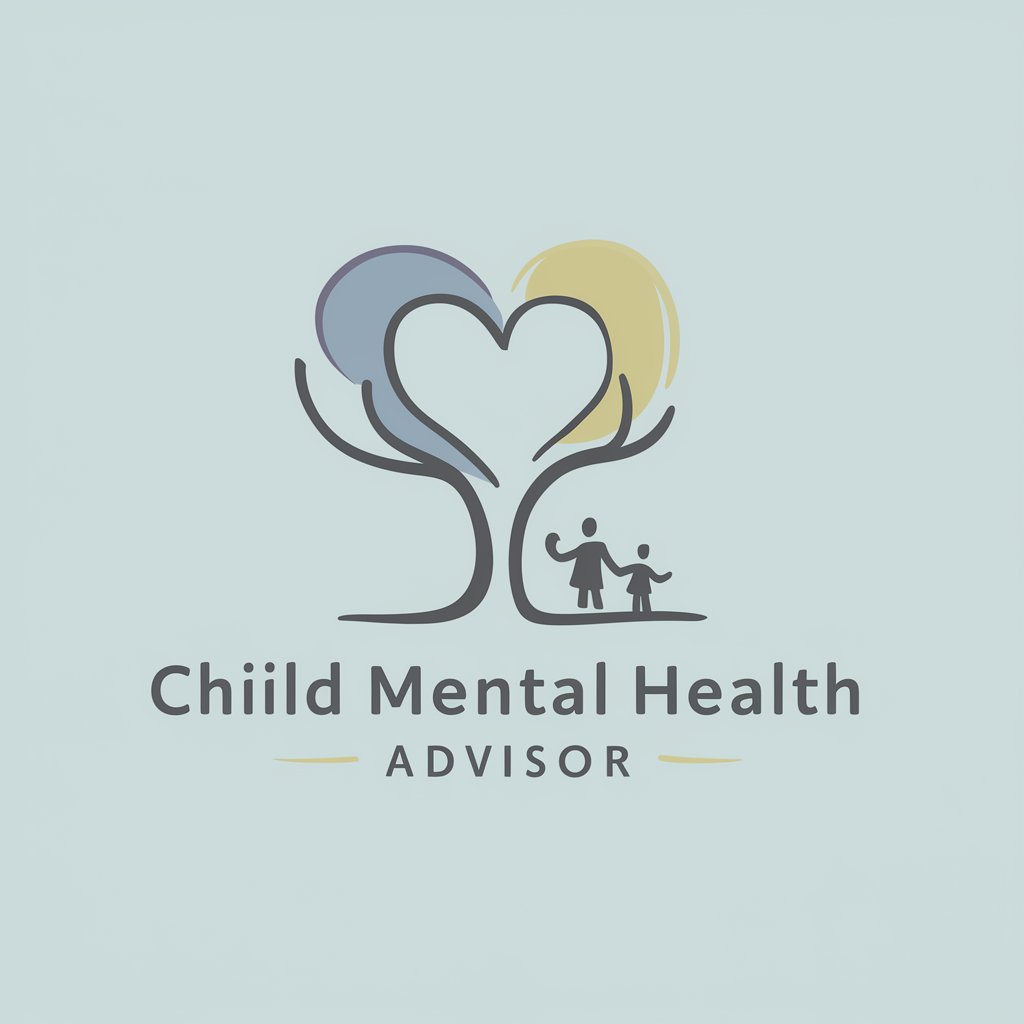
Mental Health Guide
Your AI-powered empathetic listener
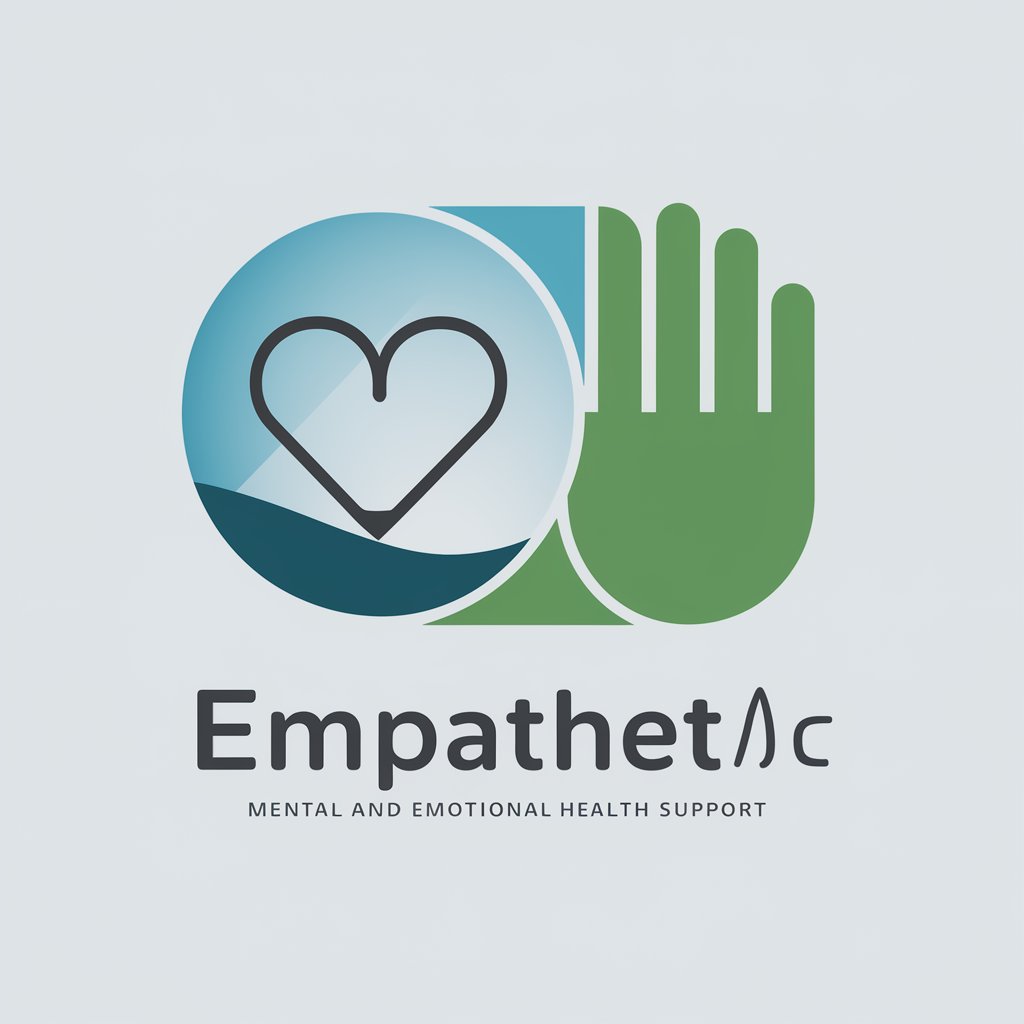
Mental Health Therapist
Empowering Emotional Wellbeing with AI
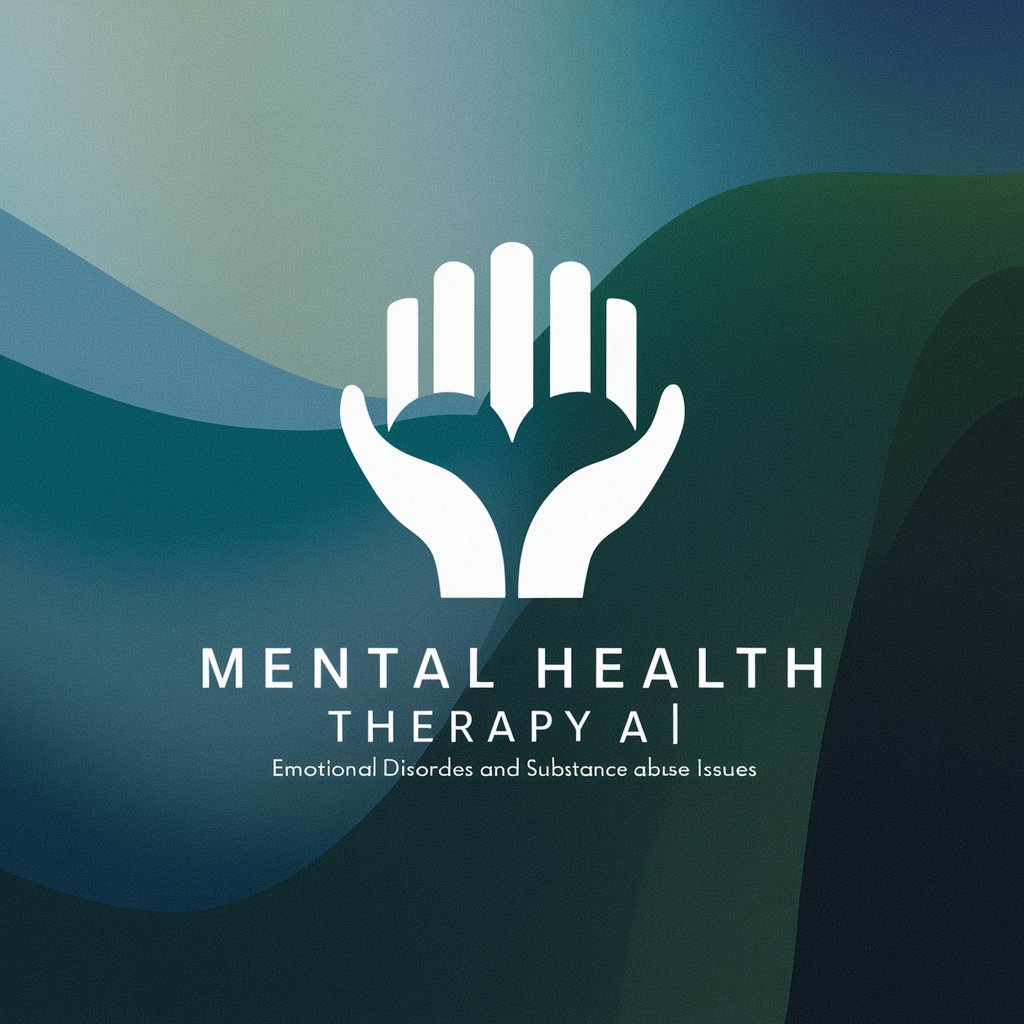
AI and Mental Health GPT
Empowering Mental Wellness with AI
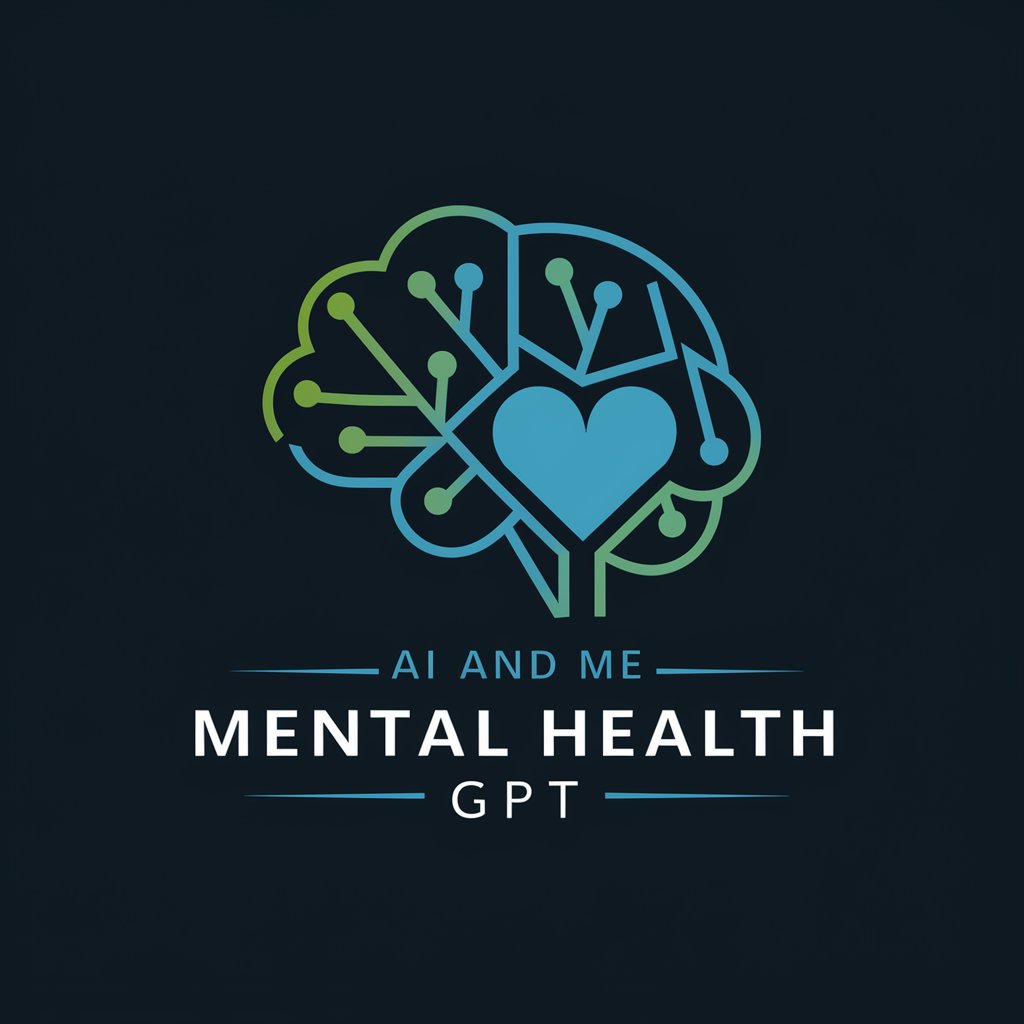
Future Tale: The Rise of gAI
Imagine AI's future, shape tomorrow.

Debate Buddy
Challenge Your Perspectives with AI

Frequently Asked Questions About Mental Health
What is Mental Health designed to do?
Mental Health is designed to offer a supportive, empathetic chat service that helps individuals express their emotions and thoughts, fostering a sense of understanding and validation without judgment.
Can Mental Health replace professional therapy?
No, Mental Health is not a replacement for professional therapy. It's a supplementary tool designed to provide support and encouragement. For serious concerns, it's important to seek help from qualified professionals.
Is Mental Health available 24/7?
Yes, Mental Health is accessible 24/7, providing continuous support whenever you need to talk or seek emotional validation.
How does Mental Health maintain user privacy?
User privacy is a priority, and Mental Health ensures that conversations are handled with confidentiality. Personal data is not stored, maintaining anonymity and security.
What should I do if I'm experiencing a crisis?
While Mental Health provides support, it is not equipped to handle emergencies. In a crisis, it's crucial to contact local emergency services or a mental health professional immediately.
